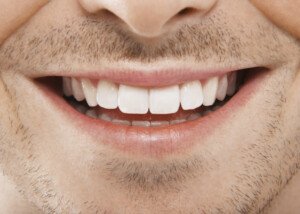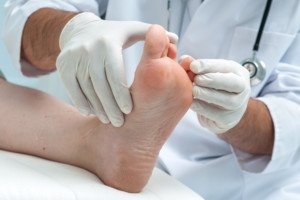
Has the body positivity movement gone too far, with influencers telling their children to think it’s okay to have crooked teeth?
Certainly a mom should never tease her child about his or her crooked teeth, nor make any disparaging remarks such as, “Honey, keep your mouth closed for the picture; nobody wants to see your bad teeth.”
But at the same time, sending a “body positive message” that it’s okay to have wayward teeth is just plain wrong. Very wrong.
There is an Instagram post from a body positive influencer about her son, around age seven at the time of this article posting, who didn’t want to smile for a picture.
She asked why and he replied that he was ashamed of his crooked teeth.
This influencer quite possibly sent her young son the wrong message:
That it’s perfectly okay, really okay, to have crooked teeth.
Her post said that she told him that we are all “perfectly made.” We are “unique and different because that’s how we were meant to be. Imperfections are just a small distraction from the joy that is this life.”
Of course, readers don’t know exactly what she told her little boy; only what she posted on Instagram.
But such a philosophical response, that detracts from a dental problem, is a red flag that body positivity has gone a bit too far for this mom.
Many Potential Future Problems

Shutterstock, Palmer Kane LLC
Will children who are taught that it’s okay to have crooked teeth, and whose parents never get them fixed by a dentist, ultimately grow up to still have crooked teeth that can potentially interfere with career pursuits?
For all we know, the young boy might want to get into broadcast journalism or local news anchoring, in which case erratic teeth might be an obstacle to employment.
But even if he wants to be a chemist or accountant … in his adult mind, he may really hate his teeth, having outgrown the patronizing body positive messages of his childhood.
This is not about perfection or having the teeth of a model in a toothpaste commercial.
It’s about having presentable teeth – but also the avoidance of the health problems that “bad teeth” can cause.
It’s about promotion of excellent oral hygiene and the normalization of regular dental checkups – a normalization that should be cultivated in childhood when the mind is more malleable and flexible.
Many adults who are scared straight of seeing a dentist did not have this normalization.
By the time they’re adults and things have gotten so bad in their mouth, they finally make that dreaded appointment and lose sleep in the nights leading up to it.
Crooked teeth in a child should never be dismissed as just a little “imperfection.” Being body positive is not the answer.
Crooked Teeth in Children: More than a Cosmetic Issue
“In terms of crowding, if kids have crowding in their primary (baby) dentition, they are extremely likely to have crowding in their adult dentition,” says Marco L. Tironi, DDS, who practices dentistry in Rochester, MI.
“These red flags often prompt dentists to start orthodontics early to correct problems before they become worse,” continues Dr. Tironi.
“The ‘mixed dentition’ stage is a stage in the child’s dental development where they have a combination of baby and permanent teeth.
“This usually begins at about age six and lasts to about age 11. Crowded or crooked teeth during this stage of development is a sure sign that orthodontics will be recommended to a child and their parents either right away or shortly after they lose their remaining baby teeth.
“Treating conditions such as crowded or mal-posed teeth, especially in this stage of development, can help alleviate bite, speech and esthetic problems in the future as well as allow your teeth to come together and function the way they were created to.
“Straight teeth are also much easier to clean and often require much less dental work over a lifetime if maintained properly.”
Body Positivity vs. Bite Problems
An improperly aligned bite can lead to difficulty chewing raw vegetables and even meats.
This can lead to a preference of mostly soft foods, which can deprive your child’s jaw from reaching its potential size in adulthood.
A poor bite can also lead to TMJ (temporomandibular joint) disorder, which can then lead to pain when chewing, yawning, and even headaches.
The best time for crooked teeth to be fixed is in childhood after all the baby teeth are out, because childhood is when the jaw is more flexible.
To be positive about your child’s oral health, you need to make sure that his or her teeth are in excellent condition, rather than minimizing the potential problems just because the child is fixated only on appearance rather than function!
 A member of the Academy of General Dentistry, Dr. Tironi is trained in sedation dentistry, dental implantology, orthodontics and dentofacial orthopedics.
A member of the Academy of General Dentistry, Dr. Tironi is trained in sedation dentistry, dental implantology, orthodontics and dentofacial orthopedics.
 Lorra Garrick is a former personal trainer certified through the American Council on Exercise. At Bally Total Fitness she trained women and men of all ages for fat loss, muscle building, fitness and improved health.
Lorra Garrick is a former personal trainer certified through the American Council on Exercise. At Bally Total Fitness she trained women and men of all ages for fat loss, muscle building, fitness and improved health.
.














